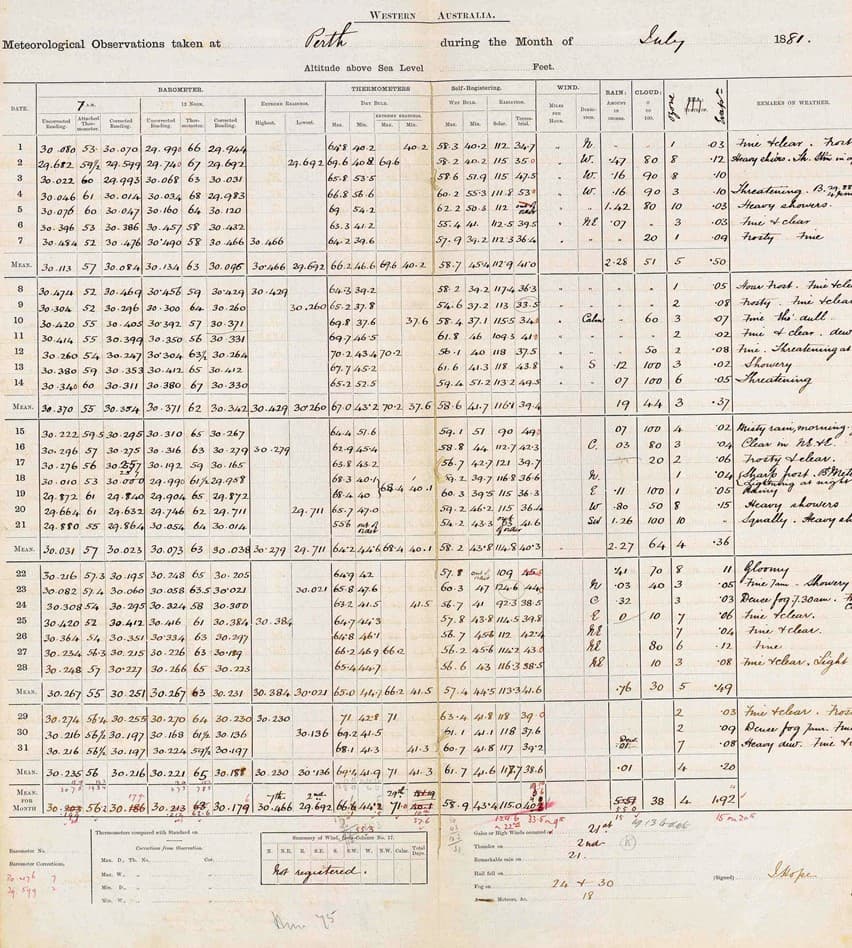Scientists from The Australian National University (ANU) are looking for volunteers to help create Australia’s longest daily weather record from a globally recognised climate change “hot spot”.
The citizen science project will help scientists reconstruct Perth’s daily weather from 1830 to the present day.
These historical records are critical for understanding Australia’s pre-industrial climate and how climate change has impacted extreme weather events.

“These weather journals are the oldest meteorological observations for Western Australia, and are likely to be the longest, near-continuous daily records for the Southern Hemisphere,” project lead Dr Joelle Gergis said.
The researchers have already published Perth’s oldest weather records from 1830 to 1875, using 16 handwritten weather journals from the Swan River colonial settlement.
“This citizen science project will bridge the gap between historical observations we’ve already collected and the start of the Bureau of Meteorology’s daily records in 1897,” Dr Gergis said.
This is the first time historical weather observations from southwestern Australia have been analysed in such fine detail.
“To date, the majority of historical data recovery efforts across Australia have centred on the colonial centres of southeastern Australia,” Dr Gergis said.
“Recovering 19th century observations from southwestern Australia is important as it is a globally recognised climate change hot spot.”
According to Dr Linden Ashcroft from the University of Melbourne, who helped pioneer research to rescue historical weather in Australia, the project is a way a practical way that people could contribute to climate science research.
“Perth’s climate is already changing. Global temperature increases are dragging our weather systems further south, meaning less rainfall for much of the southwest,” she said.
“Rescuing these historical records will really improve our understanding of exactly how these changes are occurring, and what the future may hold.
“Detailed information about our past climate can help us better prepare for future extreme events – which we know are predicted to increase in frequency and severity.”
Anyone with access to the Internet can participate in the online project.
“They can spend as little as a few minutes or much longer towards the effort,” Climate History Australia citizen science project officer, Caitlin Howlett, said.
“This research is exciting, not only because of the history we uncover, but because it has cross-generational appeal.
“It engages students and young people in historical sciences, but also respects the knowledge of older generations, and gives them a chance to leave a positive legacy for future challenges.”
To get started, volunteers can use this link to access the project on the citizen science platform, Zooniverse: www.zooniverse.org/projects/caitlinhowlett/climate-history-australia.
For more stories:



